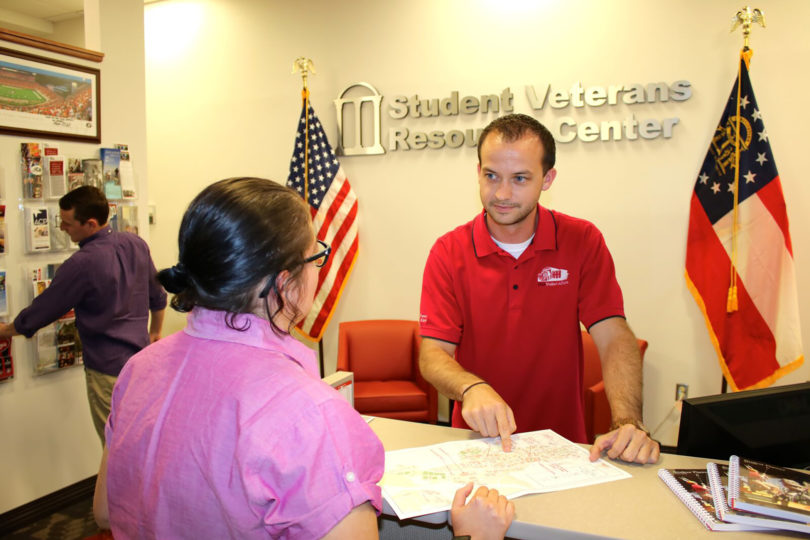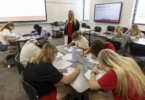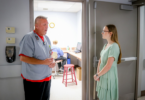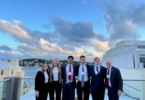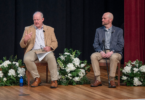Since the Student Veterans Resource Center opened two years ago, director Ted Barco has been working to help military veterans more fully integrate into student life at UGA.
In the past year, the SVRC has worked with the community to add nine awards and scholarships to ease student veteran financial strain, created a new certificate program for student veterans and established the Veteran Success Council. Comprised of senior UGA leadership and co-chaired by Dean of Students Bill McDonald and Ronald Cervero, associate vice president of instruction, the board identifies key areas where UGA can improve student veteran success.
Barco, twice retired from the national security arena, likes to map out his goals. So he’s created a wheel-shaped graphic that includes the SVRC’s priorities. Two of these priorities are easing student veterans’ transition into a large university setting and enabling access to UGA services. The third component focuses on the next phase of their lives by helping them transition to graduate school or a career.
Because student veterans are on a strict timetable to graduate within the parameters of the Post-9/11 GI Bill, which covers up to 36 consecutive months of tuition, it is vital to make sure they are “career ready” by the time the funds are exhausted, Barco said.
The average age of the student veterans at UGA is 28. Of the 210 student veterans at UGA, about half of them have spouses or children and more than half are working while attending school.
“The challenge with our student veterans is that as nontraditional students they are often pulled in multiple directions at the exact same time with school, family, work and health issues,” Barco said. “This challenge is compounded by a sense of self-reliance, which at times may work against their long-term career interests.”
To address this issue, the SVRC implemented the Black Belt Certificate Program in partnership with the Office of the Dean of Students, the UGA Career Center, First Data Corp. and the Reynolds Veterans Association. The program offers a defined pathway to career readiness.
Students who complete the journey are awarded a Black Belt Certificate.
In addition, the SVRC coordinates three mentoring programs. In one program, faculty and staff help students transition into college. A second peer mentoring-based program pairs juniors and seniors with graduate student veterans and a capstone corporate mentoring program connects students to working professionals through American Corporate Partners for a yearlong mentorship.
Justin Sailers, a combat-Marine veteran and fourth-year finance major who works part time in the SVRC, said he has benefited from the array of services provided to aid entry into a career. Sailers also is president of the Student Veteran Association, a student-run organization that works in tandem with the SVRC to foster veteran engagement and enable access to university services. He attributed his internship with a financial advisement firm to reliance on the career-readiness student services.
While serving a population as diverse as student veterans can be complicated, Barco said UGA’s tailored approach is working.
“Everyone at UGA wants to help student veterans successfully transition through higher education” Barco said, “and we’re showing them how.”


